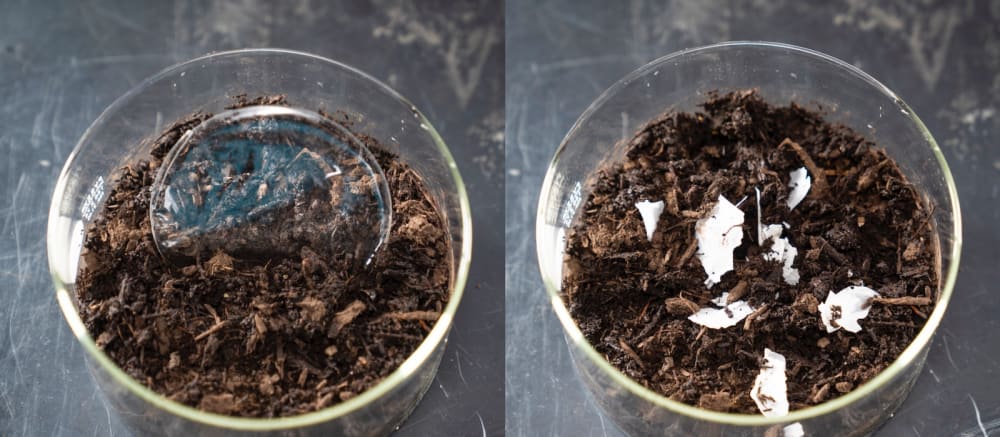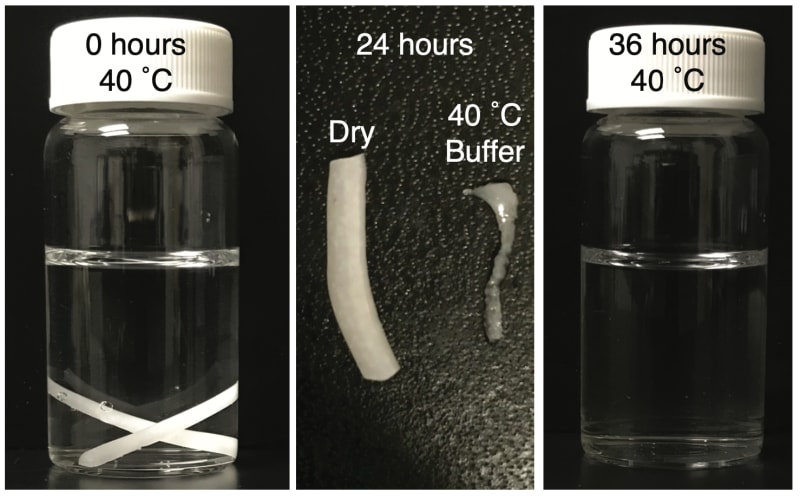

We are solving the plastic waste problem from the inside out! If you haven’t noticed, there are literally mountains of plastic waste building up in landfills, a Texas sized island of it in the ocean, and microplastics are being found everywhere. Approximately 8.3B metric tons of plastic have been produced, 6.3B metric tons have become waste. Only a paltry 9% has been recycled. However, we need our plastic packages, they keep our food safe and our medical equipment sterile and are integral for so much of our modern way of life. While recycling it all would be great, the reality is that there isn’t enough infrastructure, it’s expensive to build, and the economics of recycling aren’t that attractive either. Compostable plastics have entered the market as a solution, estimated to be a $215B market by 2027, but these products still need rare industrial composting to properly break down. Further, since composters need to degrade quickly, the usable designs tend to be limited to thin bags or cups, otherwise they hold up the line and start costing the composters money.
Thankfully, using our technology, we can embed the enzymes that degrade the plastics directly inside the plastics during manufacturing. Once triggered, the plastics self-destruct, completely degrading in days not months or years, without producing microplastics. This process is activated with accessible conditions like compost or simple hot water baths, is scalable, compatible with commercially relevant thermal processing, and can be engineered to work with a variety of plastics. Additionally, since these products degrade from the inside out, a much wider range of thick, heavy duty, or rigid product designs are accessible. Further, should the monomers be recaptured they can be chemically recycled back into new plastics. This solution to single-use plastic waste serves as a bridge to building a more environmentally friend, sustainable circular economy.
-
Awards
-
 2021 Grand Prize Winner
2021 Grand Prize Winner -
 2021 Top 100 Entries
2021 Top 100 Entries
Like this entry?
-
About the Entrant
- Name:Aaron Hall
- Type of entry:teamTeam members:Aaron Hall
Chris DelRe
Ivan Jayapurna
Ting Xu - Software used for this entry:PyMol
- Patent status:pending





